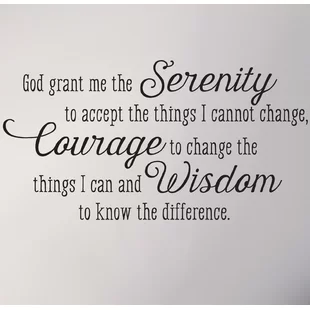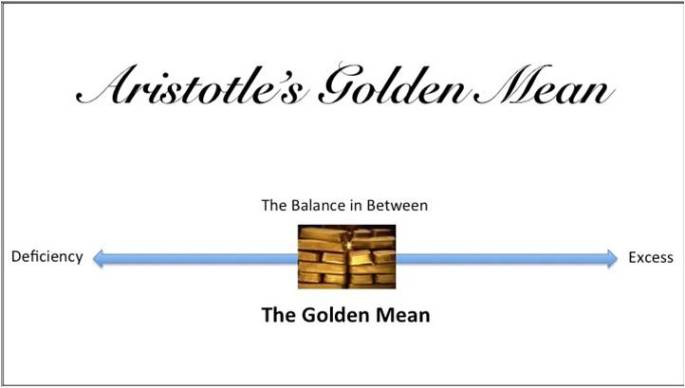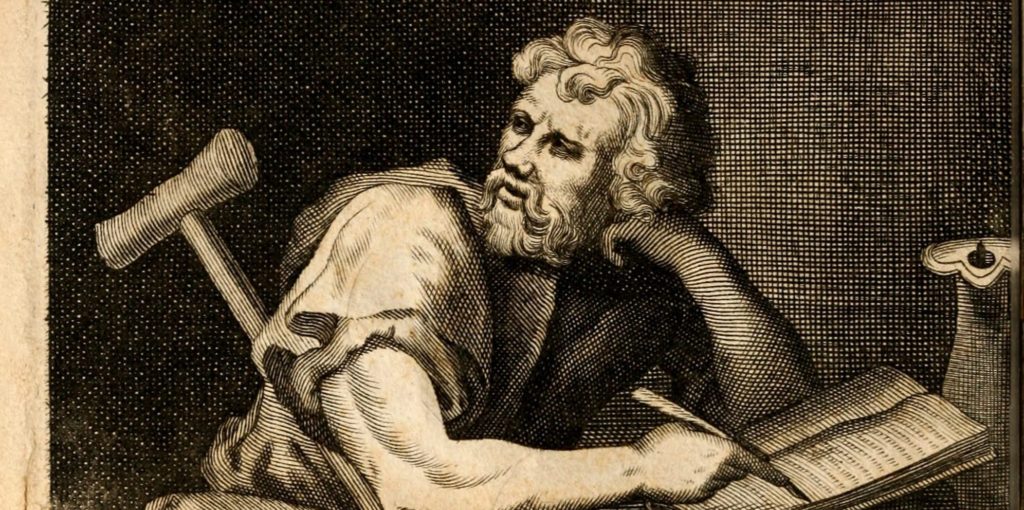
Every morning I awaken to the Serenity Prayer downloaded onto the desktop of my computer. To many this has become a boring, humdrum banality that we take for granted…unless of course you have a problem with alcohol. During these very difficult days of the Covid-19 Pandemic I began to read it more closely and observed how much sound judgment it contains.
Many people associate it with Alcoholics Anonymous. When I was in dental school during the seventies I used to pass an AA Meeting Hall on the way home. I never had a drinking or drug problem…but I was curious and went in one night. They welcomed me in and served up some good coffee and donuts. I remember the meetings starting with a reading of the Serenity Prayer. Recently I looked up the origin.
The prayer was written by a protestant theologian, Reinhold Niebuhr in the mid-thirties. He needed a topic for discussion for an upcoming sermon. It was meant for everyone…not just alcoholics. Alcoholics Anonymous(AA) adopted the prayer in 1941 when an AA member saw it in The New York Herald Tribune and asked the AA secretary at the time, Ruth Hock, to see if it could be printed in distributable cards. And so it has since become the mantra of AA.
When I read The Serenity Prayer these days I see ancient wisdom. I see Epictetus when I read it.
Who? You might ask. Epictetus was one of the most prominent Stoic philosophers…a slave and the teacher of Marcus Aurelius. He is known for his handbook The Enchiridion which is meant to keep the philosophy close at hand. For those literary types he was also the center of the main theme of one of my favorite books, Tom Wolfe’s mega-bestseller A Man in Full.
My new book, The Porch is a tribute to Epictetus and the Enchiridion. It’s a reminder for dentists about how to use and apply philosophy in dental practice. You can order a copy of The Porch right here and for just a short time get a free copy of my book The Art of Case Presentation.
Those two books helped me to realize that philosophy…specifically Stoicism, was more about practical application than about thought, meditation and reflection. Real philosophers are warriors not librarians. Philosophy can guide us …offer us help, but only if we make it accessible. Alcoholics needs actionable counsel…and so do we during these most difficult times.
Epictetus 101 tells us to “control what you can and ignore the rest.” Like the Serenity Prayer he was all about knowing what we can and can’t control. He advised his students to carry his handbook with them…so the counsel would always be at hand— accessible – hence I keep the Prayer on my desktop. It reminds me of what Socrates and Dan Goleman, the neurobiologist, consider the fundamental rule of “know yourself.”
Let’s break down the simplicity of the Serenity Prayer. It includes some very key words like, courage, acceptance, wisdom and serenity. The first three words remind me of Aristotle’s Four Cardinal Virtues. Notice that the virtues are verbs – they require some actions. Let’s examine the warrior nature of these virtues.
First courage. It takes courage to get through each day. It takes courage to act in the presence of fear…to do the right thing. Mostly, it’s harder to do what we know is right than to sit back and do nothing. Aristotle considered courage the chief virtue because without it the other virtues could not be practiced. The Jospeh Campbell, the mythologist, would tell us that we should “slay the dragon ‘thou shalt,’ as a sign of maturity and courage.
Second virtue: acceptance. That does sound fairly passive…but I would substitute the virtue of gratitude here. To understand acceptance we have to look at its opposite…denial. The word denial implies a world of “should.” When the world doesn’t behave as we think it should…we get upset, angry and frustrated. The answer is acceptance. Accept everything…take nothing for granted…only as granted. Accept as if we had actively chosen the outcome. For that mindset we must be grateful for everything.
My father taught me as I was growing up, that life is unfair. If it were fair…s**t wouldn’t happen. But, as you know…”s**t happens”. But through acceptance I never feel victimized. I deal, accept, move on and take positive action…of what is within my control. Acceptance and gratitude are liberating virtues.
Finally the virtue of wisdom. Wisdom gives the warrior clarity and perception. To know what is up to us and what is not up to us. Without clarity we don’t know how to act. Socrates considered wisdom the chief virtue.
This is a blog primarily for dentists who are trying to reconcile their work lives and their personal lives. I hope this helps…because it truly is about the universal reward for being a warrior philosopher, and that is the final word in the prayer…serenity. After some tumultuous years in practice I realized that serenity was what I was looking for.
The great Stoic philosopher Seneca said, “Our character is the only guarantee of carefree happiness.”
Bill W. the founder of AA used to say of the Serenity prayer, that it tells us “accepting the things we cannot change.” Acceptance must not be confused with apathy. Apathy fails to distinguish between what can and what cannot be helped. Apathy paralyzes and acceptance liberates. But acceptance, he used to say, required moral courage, to carry on when things look hopeless.
By becoming a philosophical dental warrior you will gain the most important thing in life: serenity and peace of mind.
 Download Our Free E-Book
Download Our Free E-Book



